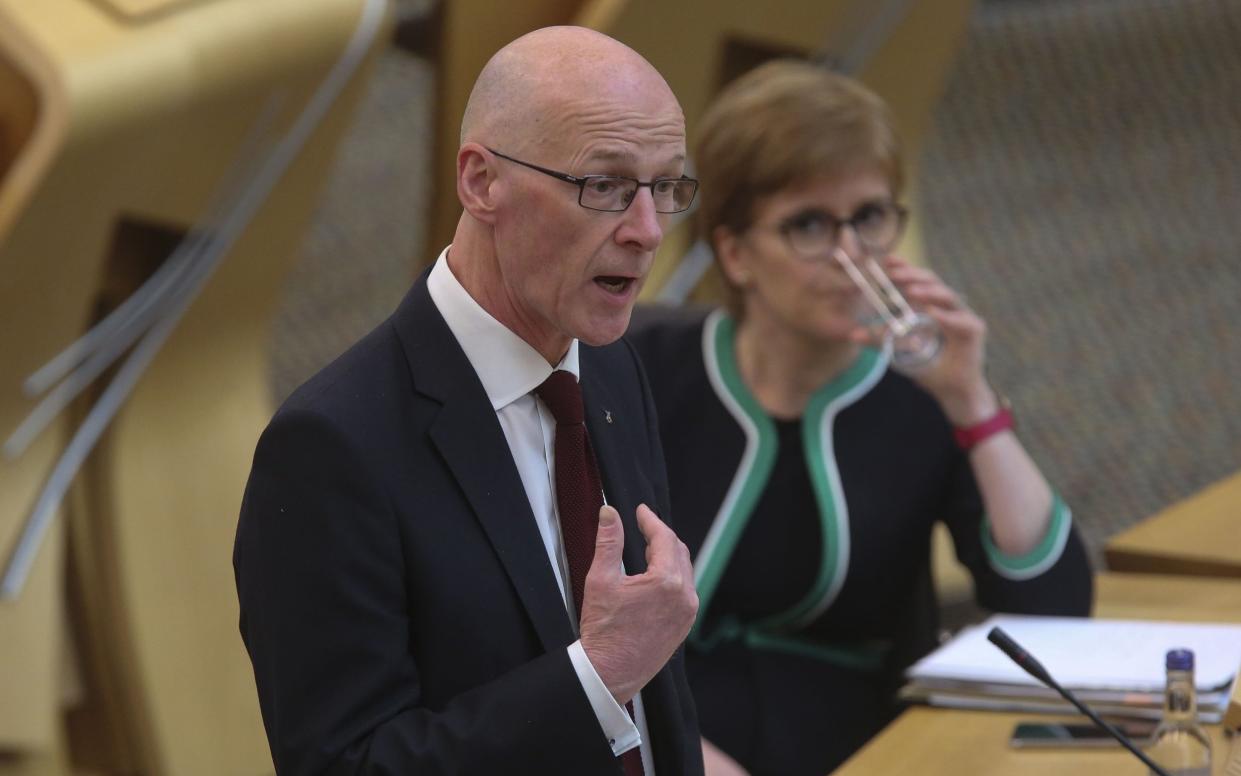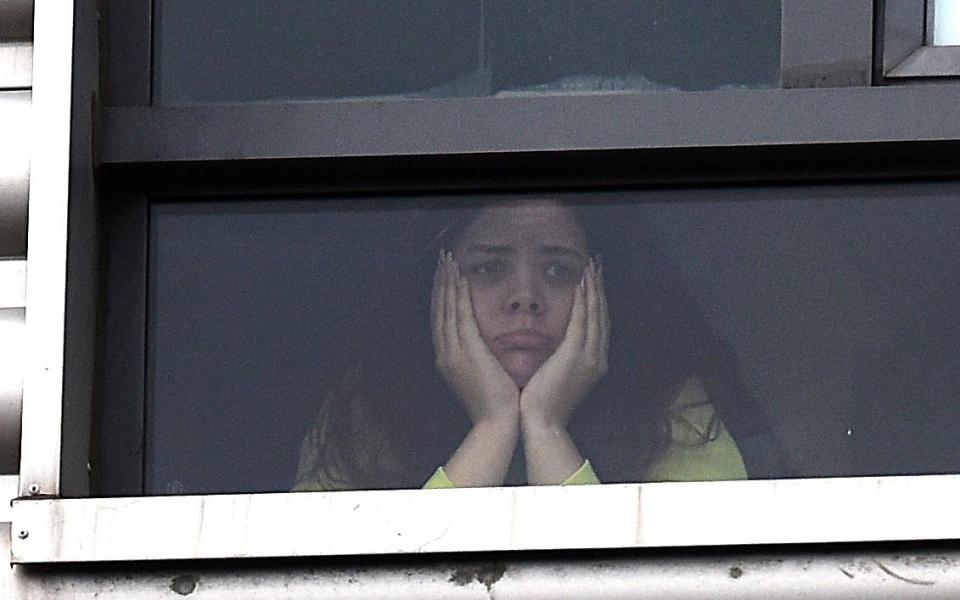School exams scrapped in Scotland as students face 'unfair' charges for halls they are banned from

Crucial school exams for tens of thousands of Scottish teenagers have been scrapped and university students face being ordered to stay away from campuses for at least six weeks after their Christmas break.
John Swinney, the Education Secretary, said he had decided it would be unfair for next year’s Higher and Advanced Higher tests to go ahead due to differences in how much school pupils had missed due to coronavirus.
However, he was attacked for dithering over the u-turn, after claiming in October that the ‘gold standard’ tests would go ahead.
He was also accused of throwing the lives of students into turmoil just weeks before the end of their semester.
He said that students returning to their family homes for the Christmas holidays would have to wait to be called back to campuses by universities, with their return to be “staggered” over at least six weeks.

The move is designed to prevent a repeat of the situation in the summer, when an influx of students caused major outbreaks of Covid-19 cases in halls of residence.
However, it was unclear whether refunds will be issued for university accommodation students are not allowed into.
It was also uncertain whether students who rely on part-time jobs, who have taken holiday over Christmas, will be allowed to return early or face having no income for weeks while being unable to fulfill their contractual obligations.
The National Union of Students also hit out at a Government request for students to voluntarily limit their social activities for a fortnight before they return home for Christmas, and a further two weeks after they go back to university.
Matt Crilly, NUS Scotland President, said: “This announcement has come too late in the day. We are concerned about the mental health implications of asking students to reduce their social mixing for 28 days in total.
"Students, it seems, are also being expected to pay rent for six weeks for accommodation they can't use. That is grossly unfair. We will be seeking urgent clarity from the Scottish Government and universities to ensure no student is left out of pocket.”
Students being told not to return to accommodation until told to, but will we still need to pay rent??? We also don’t have the full freedom to give notice and leave permanently, as Gov and Unis are still saying there will in-person teaching eventually!https://t.co/GYoTOnUrps
— Matt Crilly (@MCrilly) December 8, 2020
At Holyrood, Mr Swinney said it would be up to universities whether to issue refunds.
He said his decision to cancel Higher exams, after an earlier move to axe National 5 tests, had been taken in part due to fears that those from poorer backgrounds had missed more school than those from wealthier families.
He said students would instead be assessed on a mixture of teacher assessment and coursework.
He said: “I will not stake the future of our Higher pupils - whether they get a place at college, university, training or work - on a lottery of whether their school was hit by Covid.”
However, Jamie Greene, education spokesman for the Scottish Tories, accused the Deputy First Minister of “shamefully keeping pupils, teachers and parents in the dark for months” and failing to show leadership during the pandemic.
He added: “First it was the exams fiasco, then it was throwing the towel in over National 5 exams, and now he has dithered and delayed over Higher and Advanced Higher exams.”
On the universities plan, Alastair Sim, Director of Universities Scotland said: “The requirement for a staggered return will require urgent adaptations to timetables and teaching resources to give students the learning experience they deserve.
“A staggered return and a Government policy that discourages students from returning to their accommodation at the beginning of term raises many questions in relation to students’ accommodation contracts, with potentially major cost implications at a time when institutions are under very serious financial pressure.”

